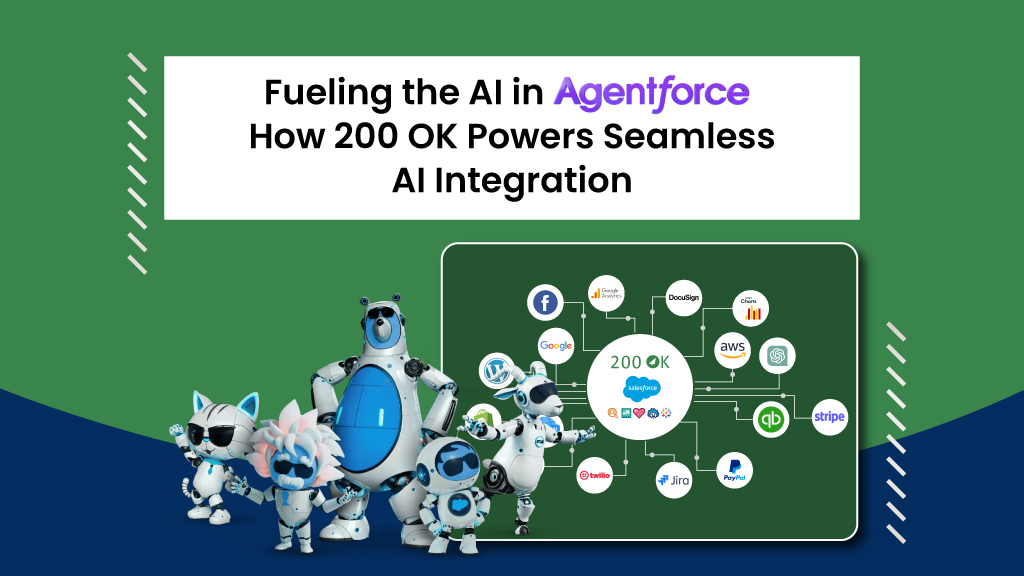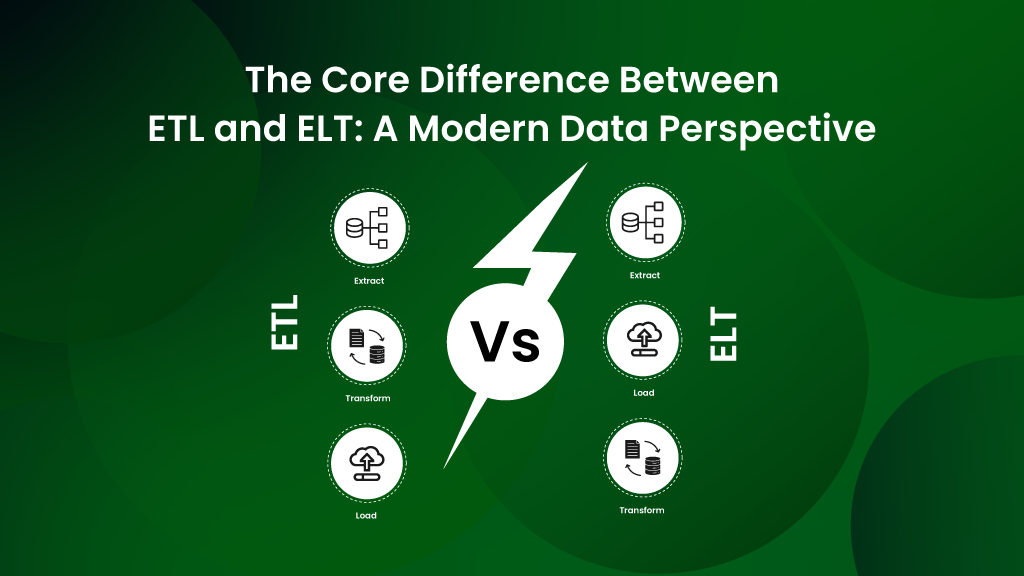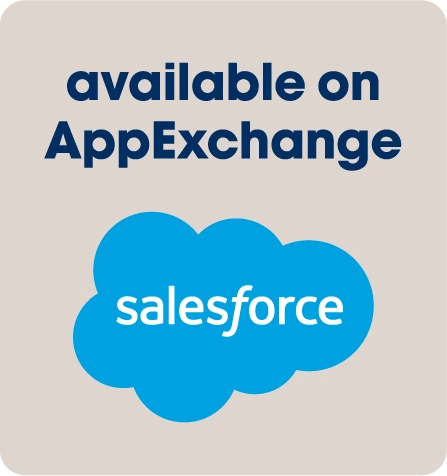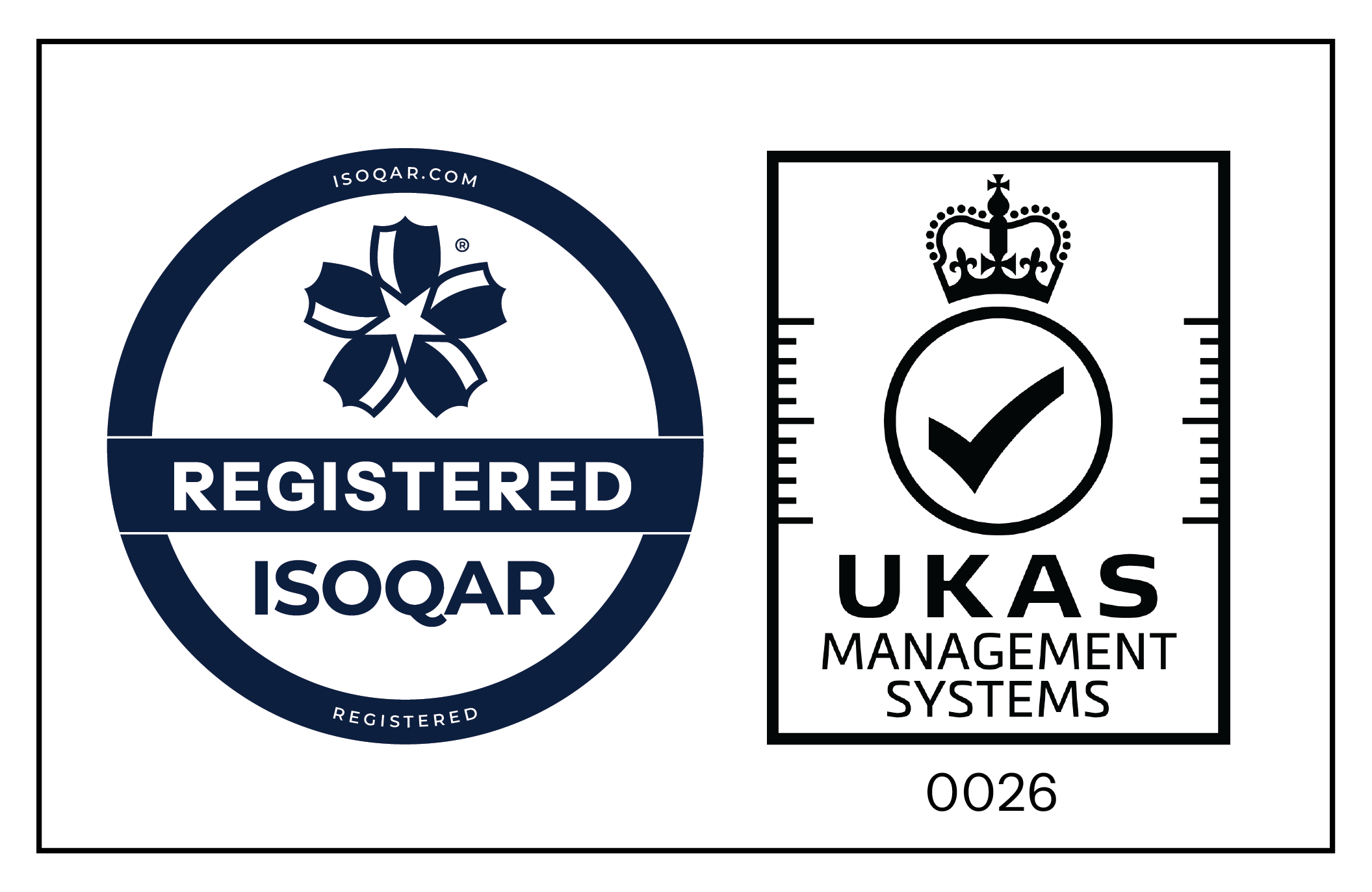When thinking of any e-commerce brand, the first name that pops into our minds is, of course, Amazon. Similarly, when we talk about CRM, it’s Salesforce, the world’s number one CRM.
Having emerged as an early market leader in cloud infrastructure, Amazon Web Services (AWS), the profitable cloud platform of the online retailer, remains at the forefront. Synergy Research Group estimates that AWS held a 31 percent share of the global cloud infrastructure market in the first quarter of 2024, slightly down from 32 percent the previous year. Just imagine the amount of customer data sitting in these platforms—it’s huge, it’s vast. Now imagine the wonders that could happen when these platforms integrate. This integration could unlock a pandora’s box of new opportunities.

In this blog, we’re going to explore what this integration can do and the top 5 ways Salesforce AWS integration can revolutionize your business.
Why does AWS and Salesforce Integration matter?
With the powerful Suite of Amazon’s products, like S3, Lambda, Eventbridge, Quicksight, etc., it is super important for you to undertake Salesforce to AWS integration. Why, you ask?
Salesforce is known for managing all the customer data, analyzing it, and automating sales, marketing, and service processes, on the other hand, AWS is known for a huge comprehensive stack of cloud services, including computing power, storage, machine learning, artificial intelligence and data warehousing, etc. which opens up a number of opportunities for integrating these 2 giants. When these two platforms are integrated, businesses can harness the strengths of both, resulting in enhanced functionality, efficiency, and scalability.
Top Use Cases & Advantages of Salesforce AWS Integration
The most important and primary AWS services eligible for integration scenarios, or the most typical use case per se are:
Salesforce with-
- AWS S3
- Athena
- DynamoDB
- Lex
- EventBridge
- Lambda
- Redshift
- QuickSight
- SNS, SQS, SES
- Bedrock
- Textract
- Sagemaker
- Transcribe
- Transcript
- Polly

The Top Benefits of Salesforce AWS Integration by function, include-
- Streamlined File Management
By integrating Amazon S3 and Salesforce, you can leverage S3’s virtually unlimited storage to take care of the increasing customer data in Salesforce. You also have the option of archiving the older or redundant data to free up space in your Salesforce CRM. Also with Athena and Salesforce integration, avoid the errors that can happen during manual data entry, and ensure your data’s consistency across the board.
- Sales and Marketing Automation
Integration with Amazon Lex and Eventbridge helps you automate your entire sales and marketing game. A few examples are predictive lead-scoring models through reading historical patterns, triggered marketing actions in response to certain events like updating lead records, setting up follow-up email campaigns, etc.
- BI and Analytics
Gain a comprehensive understanding of your customers with the integration with AWS Redshift’s huge database with Salesforce. Also, by integrating with AWS services like Quicksight, create meaningful dashboards and reports to enable data-driven decision-making across your organization.
- Improved Operational Efficiency
Automated data processing can be achieved by utilizing API Gateway with AWS Lambda to handle bulk data tasks triggered by Salesforce events, reducing manual effort and enhancing efficiency. Real-time notifications are powered by integrating Salesforce with Amazon SNS. Efficient data management is enabled through Amazon SQS for reliable message queuing. Seamless email communication is enhanced by integrating Salesforce with Amazon SES for personalized customer engagement.
- The AI Services
With seamless integration of AWS AI services like Sagemaker, Bedrock, AWS recognition, etc., enjoy the power of AI within your Salesforce instance, without making any complex changes to your org or writing long lines of code.
Integrate with Amazon Textract to quickly and efficiently extract and organize your data with ease.
- AI for Speech
Effortlessly integrate with AWS’s AI for speech products to automatically transcribe, analyze, and derive quality insights from customer interactions. Also, automatically translate different languages to your desired language using the AWS Translate feature, and with Polly and Lex integration, streamline conversational AI interactions and turn text into natural-sounding speech seamlessly.
5 Ways Salesforce AWS Integration Can Transform Your Business
- Unified CX: Customer 360 Data:
Break down data silos, fostering a holistic view of your customers across platforms. This empowers you to personalize interactions, predict needs, and deliver exceptional customer journeys.
- Leverage Advanced Data and Analytics Capabilities:
Harness the robust analytics capabilities of AWS to extract valuable insights from your Salesforce data. Identify customer trends, predict behavior patterns, and tailor marketing & sales strategies for maximum impact.
- Business Scalability On The Up:
Eliminate concerns about data volume limitations. AWS offers unparalleled scalability to accommodate your growth, ensuring smooth operation even as your customer base and data volume soar.
- Improved Security and Compliance:
AWS provides a secure environment with numerous compliance certifications. Integrating Salesforce with AWS ensures that customer data is protected and managed in compliance with industry regulations. This is particularly important for businesses in highly regulated industries such as finance and healthcare.
- Streamlined Workflows Like Never Before:
Utilize AWS Lambda’s serverless computing for real-time data processing. Automate repetitive tasks, streamline workflows, and optimize your CRM operations for peak efficiency.
Steps for AWS integration with Salesforce
Below are the steps for starting your integration journey of Salesforce AWS integration:
- Define your integration goals:
Start by asking yourself- what do I want to achieve with this integration? Outline a detailed goal and come up with your integration strategy.
- Select the right tool:
There are a number of tools available in the market to begin the AWS integration with Salesforce. One of the best tools to leverage is 200 OK, which is a native and no-code platform.
- Install 200 OK:
Head over to Salesforce AppExchange and search for “200 OK.” Install the app according to the on-screen instructions.
- Configure Your Connection:
Within the 200 OK app, establish a secure connection between your Salesforce instance and your AWS account. This typically involves providing your AWS credentials for authentication.
- Map Your Data Fields:
200 Ok provides a visual tool to map corresponding data fields between Salesforce and AWS. This ensures seamless data transfer without any mismatches.
- Go Deeper:
Explore the additional functionalities offered by 200 OK, such as ETL, data virtualization, real-time data sync, and error handling for a robust integration experience.
By following these steps and leveraging the power of 200 OK, you can bridge the gap between Salesforce and AWS, unlocking a world of possibilities for your business!
Wrap-Up
After all that we talked about and understood after reading the above, one takeaway that one can get out of it is, that to get the most out of any one of these two giants, AWS and Salesforce, it is important to integrate them. By integrating the two, one can get the best of both worlds by enhancing data management, enabling advanced analytics, and providing unparalleled scalability and flexibility. By leveraging the combined strengths of these two powerful platforms, businesses can drive innovation, achieve greater efficiency, and stay ahead in a competitive landscape. Embrace the future of cloud integration and unlock the full potential of your business with Salesforce and AWS.
Start your integration journey with 200 OK today, talk to our product experts today!
FAQs
Yes, Salesforce can connect to AWS for enhanced data management and analytics.
Yes, Salesforce can integrate with various other systems using APIs and integration tools like 200 OK.
Salesforce primarily runs on its own infrastructure but leverages AWS for certain services.
Yes, Salesforce can integrate with Azure to enhance cloud services and data management.







